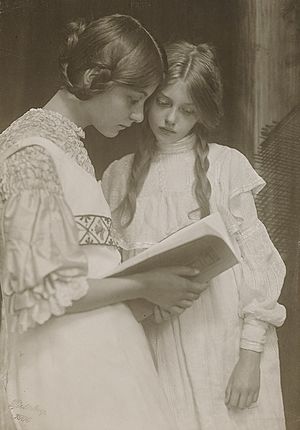Hermann Heller (legal scholar) facts for kids
Quick facts for kids
Hermann Heller
|
|
|---|---|
| Born | 17 July 1891 Teschen, Silesia, Austria-Hungary
|
| Died | 5 November 1933 (aged 42) |
| Nationality | German |
| Occupation | Jurist |
| Spouse(s) | Gertrud Falke |
| Partner(s) | Elisabeth Langgässer |
| Children | Gertrud "Jane" Heller Winikus Ruth Heller Cordelia Edvardson Lukas Heller |
| Relatives | Bruno Heller (grandson) Zoë Heller (granddaughter) |
Hermann Heller (born July 17, 1891 – died November 5, 1933) was a German legal expert and thinker. He was of Jewish background. Heller was active in the Social Democratic Party of Germany (SPD). This was a political party in Germany during the Weimar Republic period. He tried to create new ideas about how a social-democratic government should relate to the state and to feelings of national pride. He was also involved in a more traditional group within the SPD. Many believe he wrote their main ideas.
Life Story of Hermann Heller
Hermann Heller was born in a town called Teschen. This town was in a region known as Austrian Silesia. During World War I, he joined the army as a volunteer. He served in an Austro-Hungarian artillery group. While at the front, he developed a heart condition.
In 1921, Heller married Gertrud Falke. She was a dancer and the daughter of a famous German poet. They had three children together: Jane, Ruth, and Lukas. His grandchildren include Lucy Heller, Bruno Heller, Emily Heller, and Zoë Heller. In 1928, Heller also had a daughter named Cordelia with Elisabeth Langgässer. Cordelia was born in 1929.
Heller's Ideas and Debates
During his short life, Heller took part in many important political discussions. He debated with other famous thinkers like Hans Kelsen and Carl Schmitt. Heller's ideas were a new way of looking at social theories. He believed that working-class people should be fully included in the social, cultural, and political parts of their country.
He argued against Carl Schmitt's ideas. Schmitt thought that a country's leader was defined by their power during an emergency. Heller, however, believed that a leader's true power came from creating social and political stability. Many people think Heller greatly influenced Carlo Schmid. Schmid later helped write much of the German Constitution. He also played a big role in changing the SPD party.
Exile and Legacy
In 1933, Heller and his family were forced to leave Germany. They went into exile. He died in Madrid, Spain, in the same year. He left his most important work, Staatslehre, unfinished. His collected writings have been published in three books.
Recently, there has been new interest in Heller's work. This is especially true in Germany. Some of his writings have been translated into English. His ideas have also been important in Japan and in countries where Spanish is spoken. Experts who study democracy and how governments work have shown new interest in Heller's ideas since the 2010s. They believe he created the term "authoritarian liberalism" in an article from 1933.
See also
 In Spanish: Hermann Heller para niños
In Spanish: Hermann Heller para niños
 | Kyle Baker |
 | Joseph Yoakum |
 | Laura Wheeler Waring |
 | Henry Ossawa Tanner |


